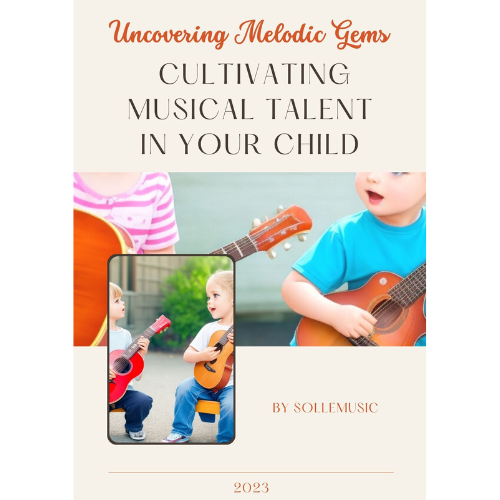In the realm of creative endeavors, few pursuits possess the captivating allure of songwriting. It's a magical process where words, melodies, and emotions intertwine to create something that resonates deeply with listeners. But what truly lies at the heart of this captivating craft? Is it a skill honed through practice, or an innate talent bestowed upon a chosen few?

Is songwriting a skill or a talent?
This inquiry delves into the very essence of creativity itself. On one hand, there are those who argue that songwriting is an innate talent, a celestial endowment bestowed upon individuals blessed with a natural inclination for musical expression. These prodigies seem to effortlessly conjure melodies and lyrics that captivate audiences, leaving an indelible mark on the annals of musical history.
On the other hand, proponents of the skill-building perspective assert that songwriting is a craft honed through diligent practice, perseverance, and a relentless pursuit of mastery. They believe that while innate talent may provide a foundation, it is the ceaseless dedication to the craft that ultimately shapes a songwriter's prowess. Like a sculptor chiseling away at marble or a painter meticulously layering colors on canvas, the art of songwriting is a journey of refinement and growth.
In truth, the answer likely lies somewhere in between. While some individuals may possess an inherent predisposition for musical expression, it is the dedication to learning, experimenting, and evolving that distinguishes great songwriters from the rest. Just as a seed requires nurturing, watering, and sunlight to blossom into a majestic tree, so too does the raw talent of a songwriter require cultivation and care to reach its full potential.
In essence, songwriting is a marriage of talent and skill, an alchemical fusion of creativity and craftsmanship. It is the intersection where inspiration meets perspiration, where the ethereal meets the tangible. Whether born of innate talent or forged through relentless practice, the art of songwriting remains a timeless testament to the boundless depths of human expression

The debate surrounding whether songwriting is primarily a skill or a talent is as old as the art form itself, often stirring passionate discussions among musicians and enthusiasts. Some argue fervently that songwriting is an innate talent, a divine spark bestowed upon a select few individuals from birth. According to this perspective, these chosen ones possess an intrinsic ability to weave melodies and lyrics together effortlessly, tapping into a wellspring of creativity that sets them apart from the rest.
Conversely, there are those who advocate for the notion that songwriting is primarily a skill—a craft that can be learned, cultivated, and refined through dedicated practice and perseverance. They argue that while natural talent may provide a foundation, it is the relentless pursuit of improvement and the willingness to learn from both successes and failures that ultimately shapes a songwriter's abilities.
Yet, the truth likely lies somewhere in the nuanced interplay between these opposing viewpoints. While some individuals may indeed possess an innate inclination towards musical expression, the art of songwriting is not solely reliant on raw talent. Instead, it encompasses a rich tapestry of skills and attributes that are cultivated over time.
At its essence, songwriting is a form of storytelling—a means of capturing the intricacies of human emotion, experience, and perception in a concise and evocative manner. It requires a keen understanding of melody, harmony, rhythm, and lyrical structure, as well as an intuitive grasp of how these elements can be combined to create a cohesive and impactful composition.
Moreover, successful songwriting demands a willingness to engage with the world—to observe, reflect, and draw inspiration from a myriad of sources. Whether it's a fleeting moment of joy, a profound sense of longing, or the bittersweet ache of nostalgia, songwriters possess a unique ability to distill the essence of these emotions into musical form, inviting listeners to share in their experiences.
Ultimately, the art of songwriting transcends the dichotomy of talent versus skill, encompassing elements of both innate ability and cultivated expertise. While some may be blessed with a natural predisposition for musical expression, it is the dedication, passion, and perseverance of the songwriter that breathes life into their creations, transforming mere notes and words into timeless works of art.

What is the hardest part of songwriting?
The arduous journey of songwriting is rife with challenges, but perhaps none are as formidable as the quest for inspiration. For many songwriters, this elusive muse is akin to a shimmering mirage on the horizon—a tantalizing promise just out of reach. Confronted by a blank page or a blinking cursor, they grapple with the daunting task of coaxing creativity to flow, navigating the labyrinthine corridors of their own minds in search of that elusive spark.
Yet, inspiration is a mercurial creature, often revealing itself in the most unexpected of places. It may lurk in the shadows of a fleeting emotion, the echo of a poignant memory, or the gentle cadence of a passing breeze. It may manifest in the whispered secrets of the night or the golden hues of a sunrise painting the sky. It is the songwriter's task to remain ever vigilant, to cultivate an openness to the world around them, and to seize upon these fleeting moments of inspiration before they vanish into the ether.
But even when inspiration strikes, the journey is far from over. The next challenge that awaits is the daunting task of translating that ethereal muse into tangible form—into lyrics and melodies that resonate with depth and authenticity. Crafting the perfect hook, finding the elusive chord progression, and weaving together words that evoke raw emotion—all of these require a delicate balance of creativity and craftsmanship.
It is a process fraught with uncertainty, a tightrope walk between intuition and intellect, between instinct and analysis. It is a journey of trial and error, of experimentation and refinement, as the songwriter grapples with the intricacies of rhythm and rhyme, melody and harmony. Each word, each note is carefully chosen, meticulously crafted, until the tapestry of sound begins to take shape—a testament to the songwriter's tireless dedication and unwavering commitment to their craft.
And yet, amidst the chaos and uncertainty, there are moments of pure magic—moments when everything falls into place, when the disparate fragments of inspiration coalesce into a unified whole. It is in these moments that the true power of songwriting is revealed, as the songwriter's vision is realized in all its breathtaking beauty. For in the end, it is not merely about the destination, but the journey itself—the winding path of creation, winding its way through the heart and soul of the songwriter, leaving an indelible mark upon the world.

What do songwriters do all day?
Despite the romanticized notions that surround the music industry, the reality of a songwriter's daily life often veers far from the glitz and glamour portrayed in the media. While the occasional glimpse of rockstars lounging by the pool or reveling in the limelight may capture the public's imagination, the truth is that songwriting is a profession defined by dedication, perseverance, and a relentless pursuit of artistic excellence.
For many songwriters, the day begins in solitude—a solitary journey into the depths of their own creativity. Whether nestled in a cozy home office or ensconced within the hallowed confines of a recording studio, they immerse themselves in their craft, laboring over lyrics, tinkering with melodies, and meticulously fine-tuning arrangements. Each chord progression, each turn of phrase is scrutinized with an unwavering eye for detail, as they strive to breathe life into their musical visions.
But solitude does not equate to isolation. Far from it, in fact. Songwriters often find themselves engaged in a vibrant ecosystem of collaboration and camaraderie, as they join forces with fellow musicians, producers, and lyricists to bring their creations to fruition. Whether brainstorming ideas over cups of steaming coffee or huddled together in dimly lit studios, they share in the collective energy of creation, bouncing ideas off one another and drawing inspiration from the creative synergy that arises from collaboration.
Yet, amidst the hustle and bustle of daily life, there are moments of stillness—moments of introspection and reflection that serve as the crucible of creativity. It is in these quiet moments that the songwriter delves deep into the recesses of their own psyche, mining the rich vein of human experience for nuggets of inspiration. They draw upon the wellspring of their own emotions, weaving tales of love and loss, joy and sorrow, longing and redemption.
And so, the days of a songwriter unfold in a delicate dance between solitude and collaboration, inspiration and perspiration. It is a life fueled by passion and dedication, driven by a relentless pursuit of artistic excellence. While the glitz and glamour of the music industry may capture the public's imagination, it is the quiet dedication of the songwriter—their unwavering commitment to their craft—that truly defines their daily existence.

How do songwriters overcome writer's block?
Writer's block, that formidable foe of creativity, is a hurdle that every songwriter must inevitably face. Yet, in the face of this daunting challenge, there exist a myriad of techniques and strategies to conquer its paralyzing grip.
First and foremost, many songwriters advocate for the power of taking a step back and allowing oneself the space to breathe. Stepping away from the blank page or the blinking cursor and immersing oneself in other creative pursuits can often provide a much-needed respite from the relentless pressure of inspiration. Whether it's picking up a paintbrush, strumming a few chords on the guitar, or simply going for a leisurely walk in nature, these moments of diversion can serve as a wellspring of renewed energy and fresh perspective.
Furthermore, drawing inspiration from external sources can be a potent antidote to writer's block. Nature, with its boundless beauty and intricate complexity, has long served as a muse for countless artists and songwriters alike. The rhythm of the waves, the whisper of the wind, the symphony of bird song—all can serve as a source of inspiration, sparking new ideas and igniting the creative flame once more.
Similarly, delving into the realms of art, literature, and cinema can provide a rich tapestry of inspiration for songwriters in need of a creative spark. From the evocative brushstrokes of a master painter to the poignant prose of a beloved novel, the world is teeming with sources of inspiration waiting to be discovered.
Perhaps most importantly, collaboration can be a powerful tool for overcoming writer's block. Engaging with fellow musicians, producers, and lyricists can foster a spirit of camaraderie and creative synergy, providing new perspectives and fresh ideas to reignite the creative flame. Whether jamming in a studio or simply bouncing ideas off one another over coffee, the collaborative process can serve as a catalyst for inspiration, propelling songwriters past the barriers of writer's block and into the boundless realms of creative possibility.
Ultimately, overcoming writer's block requires patience, perseverance, and a willingness to embrace the creative process in all its unpredictable glory. It is a journey fraught with uncertainty and self-doubt, but also one filled with moments of joy, discovery, and profound artistic expression. And in the end, it is through these trials and tribulations that the true essence of the songwriter's craft is revealed—a testament to the resilience of the human spirit and the boundless power of creativity.



